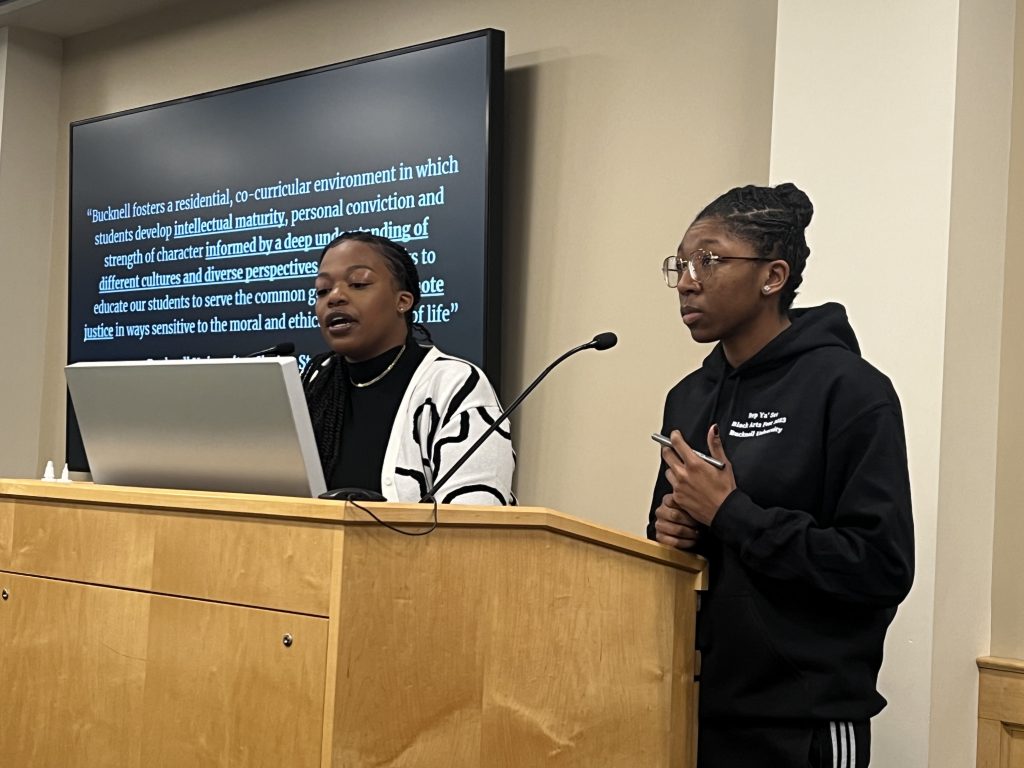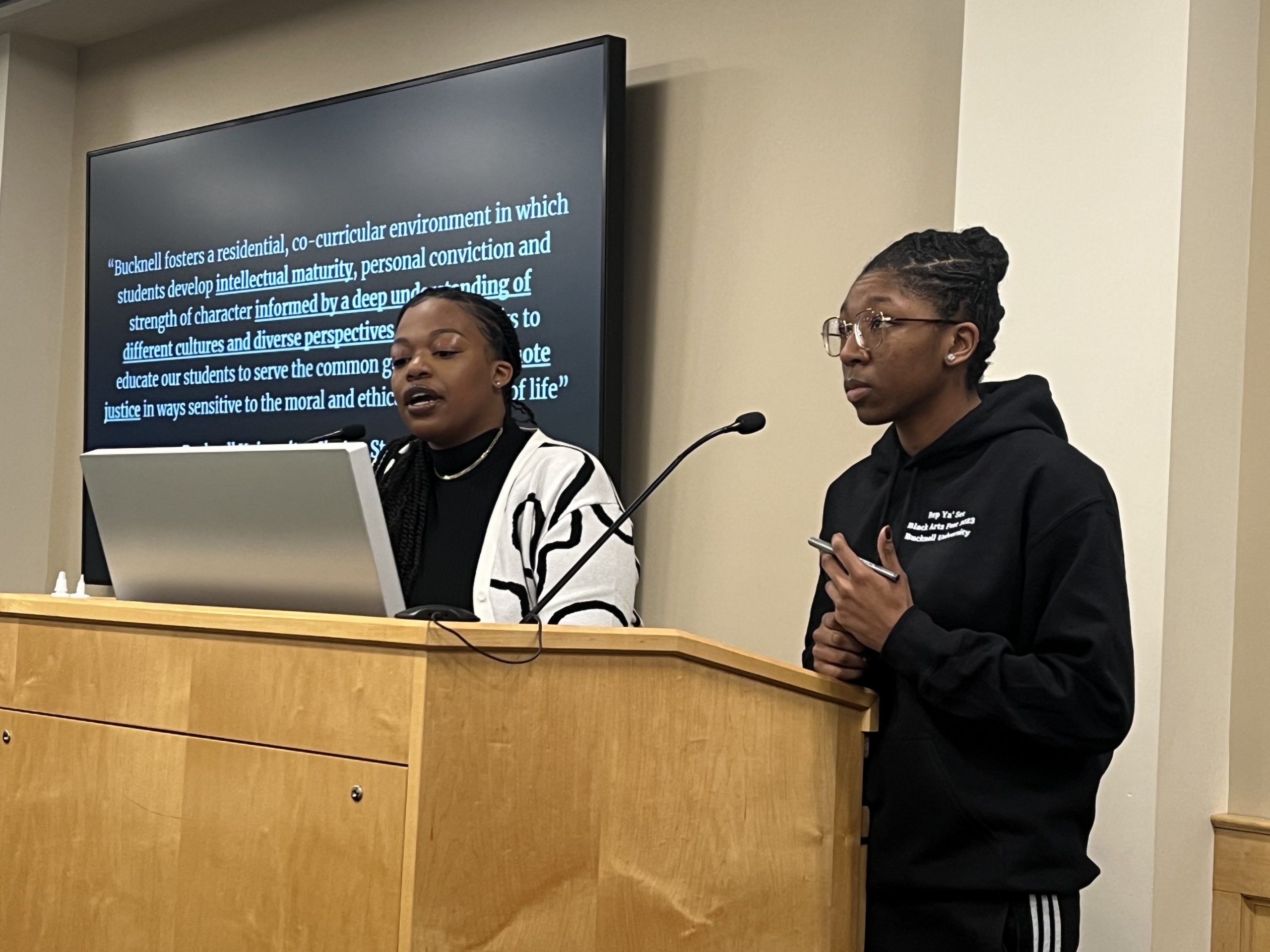About the Author: Ninah Jackson is a junior at Bucknell University, double-majoring in Education and Critical Black Studies. In addition to being an intern with the Griot Institute, she is the Chief of Staff of the Black Student Union, a Humanities Fellow, and a co-facilitator of the Social Justice Learning Community course.
An unfortunate reality is that since my time here at Bucknell, the Black student experience and broader Black history of this institution has been distilled to two people: Edward Brawley – the first African American to earn a bachelor’s degree from Bucknell University in 1875 – and Martin Luther King Jr., who was not a student at Bucknell but visited campus in 1958. Gone unspoken is the longue durée of Black student activism, placemaking, institution building, tension, unity, and joy; obscured is the story of how Black Bucknell students have survived, thrived, and made a way since the days of Brawley.
As an intern at the Griot Institute, I lead the Storytelling Project – a research initiative focused on the collection and archiving of dialogues and stories of the Black Bucknell community. Last academic year, I worked with Jerra Holdip – a graduate of the class of 2023 and former Griot intern – to gather the oral narratives of current Black students. We conducted nine interviews with nearly 30 people, including members of the Black Student Union (BSU) and the National Society of Black Engineers (NSBE). From these interviews emerged critical insights into why these particular Black students chose to attend Bucknell, how their various intersecting identities impact the way they engage with the university as well as how the university engages with them, the hurdles and challenges they have faced at Bucknell, and the legacies they hope to leave behind as they graduate and matriculate out. Jerra and I had the opportunity to present our findings to faculty, staff, and students at the 2023 Bucknell University Diversity Symposium. The full presentation can be found on MediaSpace.
For me, the Diversity Symposium exemplified the pedagogical utility of the narratives and stories of Black students. For those willing to listen attentively, critically self-reflect, and work towards something new, the interviews Jerra and I collected can clarify the myriad of ways in which Bucknell has fallen short of its mission and where exactly intervention is needed. For students, these interviews can impress the importance of developing counterarchives and counternarratives – alternative modes of knowledge production about the Black student experience on campus.

This academic year, I will build upon the collection of stories from previous semesters by interviewing Black Bucknell alums. So far, I have contacted Edward Robinson, an alum of the class of 1986, and anticipate interviews with alums from the classes of 2003, 2005, 1961, and 1962.
For more information about how you or someone you know can contribute to this budding research project, please contact me at nj007@bucknell.edu!
